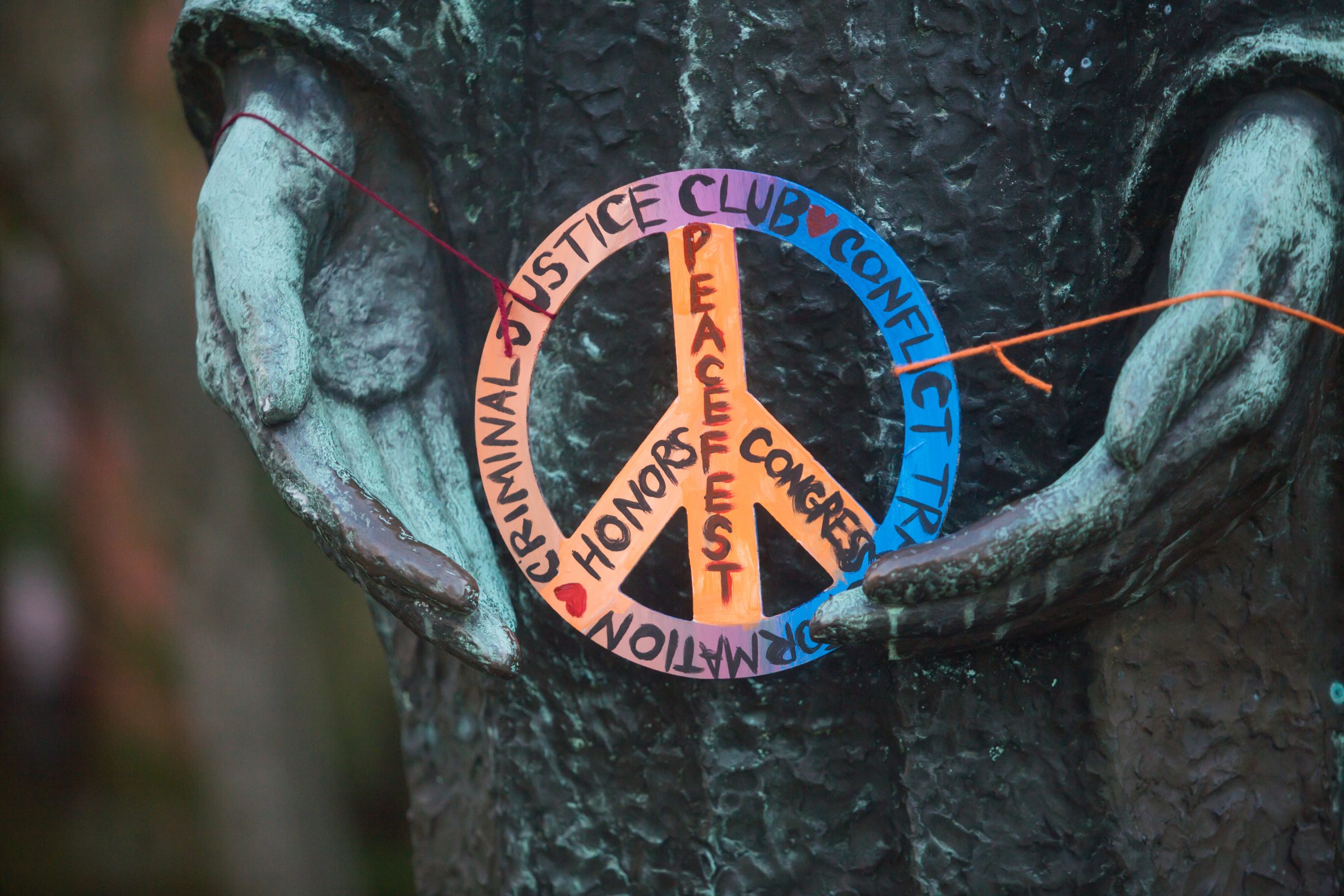Program Requirements
Students in conflict transformation studies will examine the theory, analysis, history, culture, and transformational processes involved in conflict situations, justice, and peace building, from interdisciplinary and faith-based perspectives.
Major Requirements (BA)
Required semester hours
36 hours of major coursework
120 total credits for graduation
In consultation with an advisor in this major, students will design a capstone project.
Students completing the major must submit an e-portfolio to the student’s departmental advisor.
Minor Requirements
CTS 3000, 3100, 3200, 3300, 3400
Academic Catalog Core Curriculum
Course Descriptions
The following descriptions are a sample of courses you may take as a conflict transformation major. For a complete list of required courses, please review the academic catalog.
A historical study of the Hebrew prophets within the economic, political, and social conditions of their time. The significance of the prophetic message for the Hebrew and Christian faiths. Biblical Emphasis-Old Testament.
Study of the common features and distinctive motifs that characterize some of the main religious traditions Hinduism, Buddhism, Islam, and others. Emphasis on development of a methodology for reading and interpreting the world's scriptures. Discussion of the relation of Christian to non-Christian religions. Theological Emphasis.
An intensive investigation of a selected topic in biblical studies, theology, world religions, or philosophical theology. Extensive reading and research expected. Seminar format.
An introduction to major topics, major theories and direct experience of inter-cultural communication. Through readings, discussion, exercises and field trips, students prepare for encounters with different cultures.
This is an introduction to the practice and philosophy of nonviolent conflict transformation. The course assumes that conflict is a normal part of our daily lives, with both constructive and destructive potential. Students will learn introductory skills in conflict analysis and conflict transformation, including theories, methods, and practices for conflict transformation and peacebuilding; examine their own approaches to conflict; meet North Park faculty and others working in the broad field of conflict transformation; and develop a deeper understanding of the role of the arts and spirituality for conflict transformation, including the interplay of justice, truth, forgiveness, and peacebuilding.
This course is designed to integrate various definitions of peace and community into a practical outcome. Students will identify their own approaches to conflict, assess their strengths and needed areas of growth, and apply learned strategies to ending violence in Chicago. Specifically, students will be involved in all areas of planning, development, and production of a major community conference during the spring semester. Areas of collaboration with community organizations will include fundraising, public relations, community outreach, conference logistics, and facilitation.
This course provides students with both theoretical and practical knowledge of mediation. Through case studies and other readings, experiential exercises, guest presentations, and lectures, students will be introduced to the practice of mediation in interpersonal, intercultural, and organizational contexts. Students will also examine issues of ethical relevance to the practice of mediation. Upon completion of this course, students will have the skills to conduct mediations. However, this course is not designed to certify participants for specialized mediation services such as court-mandated mediation or arbitration.
The goals of this course are: to develop skills, competencies, and points of view needed to create ethnographic performances-through engagement with theory, research, field work, empathy, advocacy for social justice, and writing for performance; to learn several models for connecting performance and social change; and to develop and present a performance for social change. Recent research topics have included immigration experiences and peacemakers in Chicago.
An introduction to the theory, analysis, and practice of nonviolent, international conflict transformation through one or more international case studies. This course will enable students to develop a wide range of skills for analyzing specific international conflicts, to understand the role of non-government mediators in international conflict transformation, and to explore their own possible "calling" to conflict transformation. Theory and analysis will be drawn from the fields of peace and conflict studies, global studies, communications, cultural studies, religious studies, the arts, and media studies. The course includes guest presentations, role plays, and field trips. The course may involve an international trip to one or more conflict zones.
Variable credit may be given for short-term seminars, study trips, service-learning and experimental courses.
Undergraduate registration for graduate courses in other North Park programs, such as the School of Business and Nonprofit Management and North Park Theological Seminary.
Students will synthesize their coursework and practical experience, and complete their Concentration and Capstone project. Research projects may vary widely in topic and form, and may include research papers, performances, original art work, ethnographic work, advocacy work, international research, or some combination. At the end of the semester, students will present their research to each other and invited guests. Students will also write a reflective essay, summarizing and analyzing what they have learned and how they plan to pursue this work after graduation.
Working with an advisor from the CTS program, students will complete 2 sh (or more) credits of internship experience. Students will be expected to integrate CTS theory and practice, including: description of concrete experience; reflection on the experience; generalizations about the experience; connections to the student's concentration; how the experience has affected the student; and how the internship has promoted conflict transformation in a particular arena or context. Internships will be arranged with organizations such as World Relief (Chicago), Chicago Coalition for the Homeless, Refugee One, Albany Park Neighborhood Council, Albany Park Theatre Project, Interfaith Youth Corp, Parliament of the World's Religions, World Vision, Chicago Center for Conflict Resolution, Community Renewal Society, Eighth Day Center for Justice, and many others.


